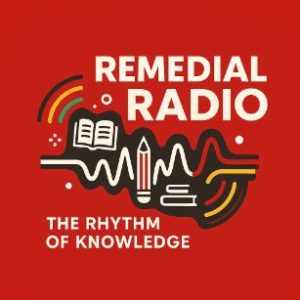Contents
Introduction
The relationship between human activities and the environment is a critical topic worldwide, especially in ecologically diverse countries like Uganda. Understanding how we use our environment not only sheds light on our interaction with nature but also helps in assessing the impacts of these interactions on local ecosystems. In this blog, we explore various human activities in Uganda and their effects on the environment, providing a comprehensive look at the delicate balance between development and ecological preservation.
How We Use Our Environment: Activities and Their Impacts in Uganda
Agriculture
Agriculture is a cornerstone of Uganda’s economy, employing a large percentage of the population. However, the methods of agricultural practice often lead to significant environmental impacts. For example, the extensive clearing of forests for farmland has led to habitat loss and a decline in biodiversity. Additionally, the use of chemical fertilizers and pesticides can cause water pollution, affecting both aquatic life and human health.
Urbanization
As urban areas expand in Uganda, the demand for housing, infrastructure, and services grows. This expansion often comes at the expense of green spaces and wetlands, which are crucial for biodiversity and as natural water filtration systems. The construction of buildings and roads has also led to increased surface runoff, which can lead to erosion and water pollution.
Tourism
Tourism in Uganda, especially eco-tourism, plays a significant role in the economy and is a double-edged sword regarding environmental impact. On the one hand, it promotes conservation efforts, especially in protected areas like Bwindi Impenetrable Forest, home to the mountain gorillas. On the other hand, if not managed sustainably, tourism can lead to habitat destruction, waste problems, and water resources overuse.
Industrialization
Industrial activities, particularly near urban centers like Kampala, have contributed to air and water pollution. Factories often discharge waste into local water bodies, which affects the quality of water available to local communities and harms aquatic ecosystems. Air pollution from industries and vehicles contributes to health problems among the population and impacts climate patterns.
- Deforestation for Charcoal Production: In Uganda, the production of charcoal is a major economic activity for rural communities. This often leads to unsustainable deforestation, which contributes to habitat loss, reduces biodiversity, and increases greenhouse gas emissions. Managing this resource through community-based initiatives and promoting alternative energy sources could mitigate some of these environmental impacts.
Other points on Understanding How We Use Our Environment are as follows:
- Water Resource Management: Water is a critical resource in Uganda, used for agriculture, industry, and domestic purposes. The management of water resources is crucial, particularly in areas prone to drought or where water pollution is prevalent. Implementing efficient irrigation practices, reducing industrial discharges into waterways, and promoting water conservation techniques are vital steps toward sustainable water use.
- Mining Activities: Mining, particularly for minerals like gold and cobalt, is significant in Uganda but often comes with environmental costs such as soil erosion, water contamination, and loss of biodiversity. Implementing stricter environmental regulations for mining operations, including better waste management practices and rehabilitation of mined areas, can reduce these environmental impacts.
- Waste Management and Recycling: Urban centers in Uganda face significant challenges with waste management. Poorly managed waste contributes to pollution, public health issues, and environmental degradation. Enhancing waste management systems, investing in recycling facilities, and educating the public about sustainable waste disposal practices can improve environmental outcomes.
- Renewable Energy Adoption: Transitioning to renewable energy sources such as solar and hydroelectric power could significantly reduce Uganda’s carbon footprint and decrease reliance on biomass and fossil fuels. This shift not only conserves the environment but also harnesses Uganda’s abundant renewable resources for sustainable growth.
- Land Use Planning: Comprehensive land use planning is essential to balance the needs of development with environmental conservation. Proper planning can help prevent the encroachment of urban areas into protected zones and maintain the ecological integrity of these areas.
- Community Engagement in Environmental Conservation: Engaging local communities in conservation efforts is crucial for the success of environmental policies. Community-based approaches to managing natural resources, such as participatory forestry management or local wildlife conservation projects, can enhance environmental stewardship and provide economic benefits to local populations.
Conclusion
In Uganda, as in many other parts of the world, how we use our environment has profound implications for ecological health and sustainability. While economic development is crucial, it is equally important to ensure that environmental considerations are at the forefront of planning and implementation. Sustainable practices in agriculture, controlled urban expansion, responsible tourism, and stricter regulations on industrial emissions can help mitigate the adverse effects of human activities. By adopting more sustainable practices, Uganda can safeguard its natural resources for future generations, ensuring that the environment continues to thrive alongside economic and social development.


Leave a Reply